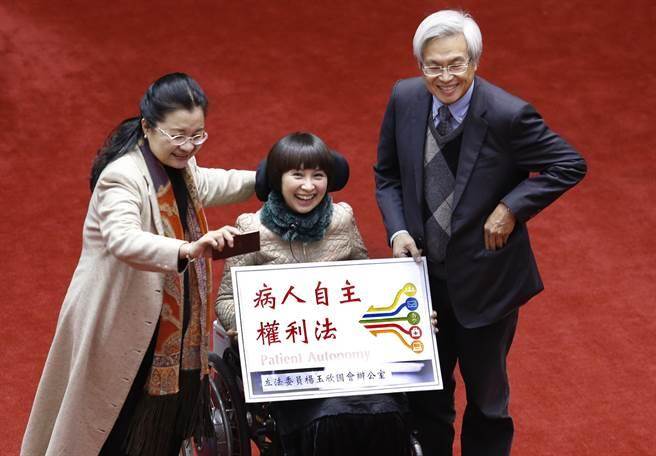
The Legislature Yuan of Taiwan has passed the Patient Self-Determination Act (PSDA) on December 18, 2015. This act allows patients to have a say in their medical care at the end of life. The Ministry of Health and Welfare indicates that the act is the first patient self-determination act published in statutory form and will begin to take effect three years later.
The purpose of PSDA is to re-emphasize the importance of patients’ rights when it comes to medical decision making, especially when it is a matter of life or death. Patients can make their own Advance Directive via Advance Care Planning by stating whether they wish to accept or refuse any kind of medical treatments when diagnosed with the following conditions: being terminally-ill, in a coma or persistent vegetative state, or with advanced dementia or incurable diseases that include unbearable pain.
The highlight of PSDA is it gives Advance Directive a legally binding nature, which occurs when patients receive Advance Care Planning consultation provided by approved medical institutions. The result is the patients’ own Advance Directive, which then needs to be notarized or witnessed by two fully capable adults, stamped by the institution, and be registered in the National Health Insurance system. Additionally, two specialist physicians are required to confirm if patients meet the five definitions stated in the act.
In order to minimize the skepticism of the medical staff, immunity is introduced to this act. That means medical institutions and physicians are freed from criminal liability when they do not completely fulfill the patients’ Advance Directive based on the staff’s own judgment or willingness; or when they perform according to the patients’ Advance Directive to suspend, remove or refuse life sustaining treatments. When it comes to the all-too-familiar scenario where patients and family members are inconsistent, this act allows the medical institution and staff to focus on the patients’ will and prevents family members from interfering.
For now, the passing of this act is considered a major step forward and a milestone for holding high values on patients’ self-awareness and autonomy in Taiwan. As criminal liability is excluded from PSDA, it is intended to encourage medical staff to respect the patients’ own decisions when it fits certain circumstances as stated in the act. As Advance Directives will be made by different individual with various religious, moral backgrounds and values, the Ministry of Health and Welfare has invited representatives from all interest groups, especially from the medical association, to discuss openly about the enforcement of this act. Once the enforcement rules are finalized and published by the authorities, a series of public awareness campaign will soon followed.

